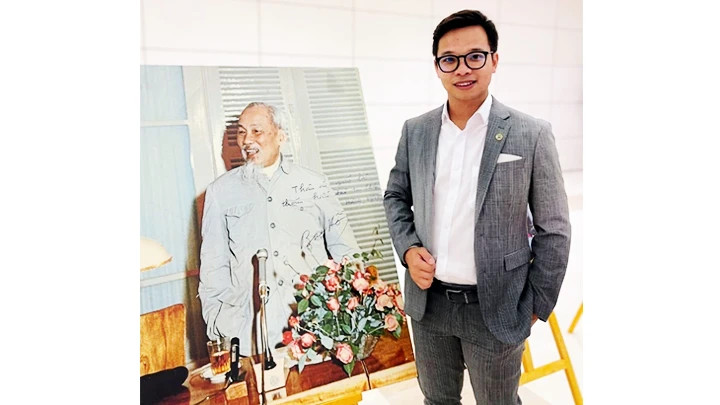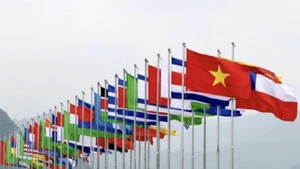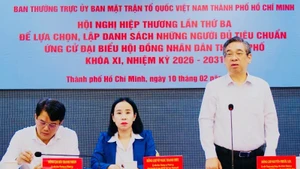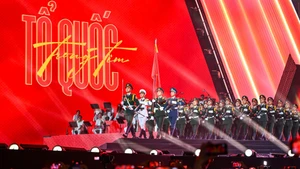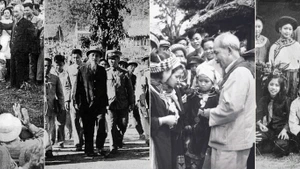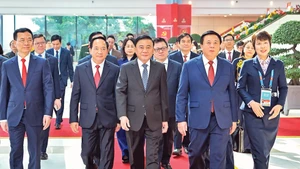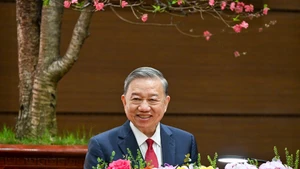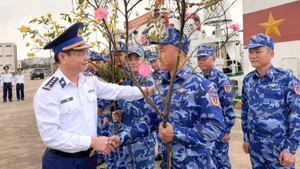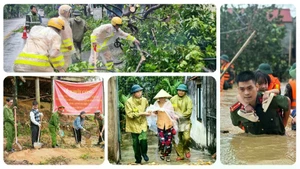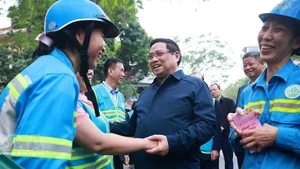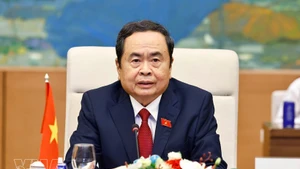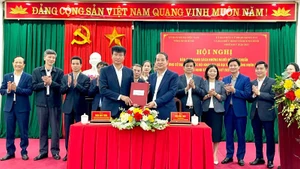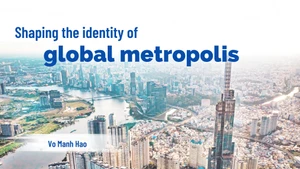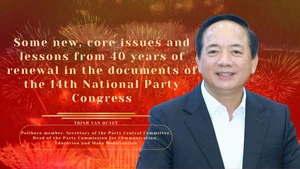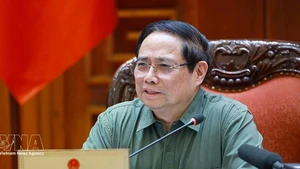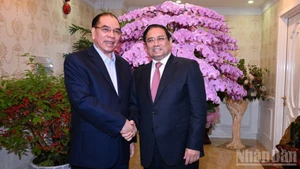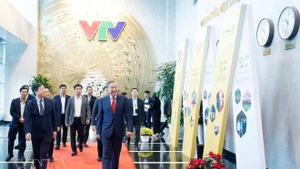Roads bearing Uncle Ho’s name
Over 15 years as a chef and now a Vietnamese restaurant owner in Italy, Hoang Kien has gradually accumulated a trove of stories about Viet Nam that he proudly shares. “It turns out that many elderly Italians know about Uncle Ho. When they come to my restaurant, they proudly recall having joined protests against the war in Viet Nam, and they tell me stories from their youthful activism. In Italy, once I say I’m from Viet Nam, they immediately respond: Viet Nam – Ho Chi Minh.”
Kien’s sentiment is shared by many overseas Vietnamese – a sense of identity, a distinctly recognisable Vietnamese value, that speaking of Viet Nam or its people almost instinctively invokes the name of President Ho Chi Minh. During the recent commemoration of the 50th anniversary of the Liberation of the South and National Reunification, journalist Srinivasan Ramani from The Hindu (India) eagerly recounted that between 2004 and 2010, while part of the student union at Jawaharlal Nehru University, he and his friends often sang: “Ho-Ho-Ho Chi Minh/We shall fight, we shall win/Marx, Lenin, Bhagat Singh / We shall fight, we shall win”.
Among the international reporters attending the event was journalist Nguyen Huy Thang, residing in Berlin (Germany). He shared well-memorised dates and figures about the memorial garden dedicated to President Ho Chi Minh in Moritzburg. This site marks President Ho’s visit on 29 July 1957, during his official visit to the then German Democratic Republic, where he met and spoke with Vietnamese children studying at the Kaethe-Kollwitz-Heim school. Thang also mentioned that a recent report from the Thang Long Group in the Federal Republic of Germany proudly noted the company’s participation in restoring the stone columns and walls around the garden, building access paths, laying gravel walkways, hiring caretakers, and recovering the original bronze plaque bearing the inscription: “Im juli 1957 empfingen hier die zeittweilig im Kaethe-Kollwitz-Heim lebenden Vietnammesischen kindern ihren praesiden Ho Chi Minh” (translation: In July 1957, the Vietnamese children residing and studying at the Kaethe-Kollwitz-Heim welcomed President Ho Chi Minh here). Thanks to the collective effort of individuals and organisations, the garden has since become a local cultural and historical landmark, a place for the Vietnamese community in Germany to return to each May in remembrance of Uncle Ho.
In recent years, within the community of young Vietnamese intellectuals in France, Assoc.Prof.Dr. Tran Le Hung of Gustave Eiffel University has gained recognition for his deep affection for President Ho Chi Minh. Hung shared: “The five teachings of Uncle Ho for children and the message he sent to students on the first school opening day of the Democratic Republic of Viet Nam in 1945 were among my earliest memories of him, as they were for many generations of Vietnamese students. Those simple, heartfelt instructions felt like they came from a family member and became part of my childhood dreams. Later, when I had the chance to study and work in France – a country closely linked to President Ho’s quest for national salvation. I grew to understand and cherish him even more. That love deepened as I visited historic sites and listened to prominent French historians speak about him.”
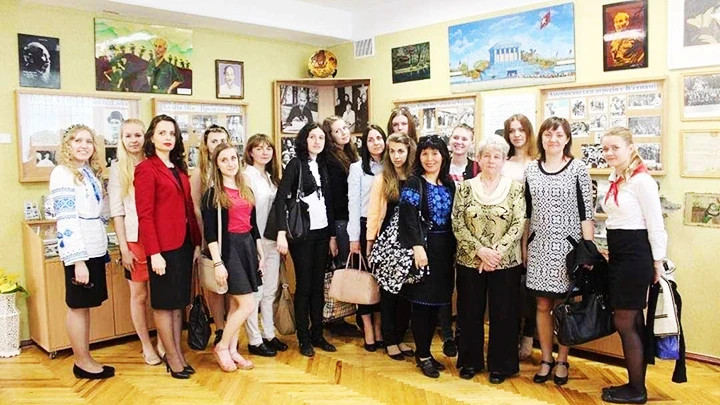 |
| Ha Thi Van Anh (front row, fourth from the right) photographs with the first generation of Vietnamese language students during President Ho Chi Minh’s birthday celebration in 2017. |
Lecture halls where Uncle Ho’s legacy lives on
Whenever the Vietnamese national team comes to Germany for friendly matches, the overseas Vietnamese community never forgets to bring Viet Nam’s flag and portraits of President Ho Chi Minh. Many households of Vietnamese origin still uphold the tradition of placing his image in their family altars. Perhaps it is from these customs that affection and respect for Uncle Ho have been passed down to younger generations born and raised abroad.
This May, the Vietnamese communities in France, Hungary, Germany and elsewhere are commemorating the 135th anniversary of his birth. On May 17, the Vietnamese Embassy in Hungary organised a flower offering ceremony at the memorial site of President Ho Chi Minh in Zalaegerszeg. That same day, in the same city, the Embassy hosted a seminar titled “President Ho Chi Minh’s Thought on Peace – Independence – Freedom – Happiness” to introduce his ideas to the local authorities and citizens of Zalaegerszeg and the Hungarian people.
In the hearts of those far from home, stories about Uncle Ho evoke not only pride but also provide a steady and peaceful spiritual strength to lean on in uncertain times.
In 2012, Ha Thi Van Anh and Victoria, a PhD holder in Vietnamese Studies in Ukraine, together with Taras Shevchenko National University of Kyiv, were determined to introduce a Vietnamese language department. In those early days, to make the classroom a warmer and more inspiring place, Van Anh brought in a large seashell engraved with President Ho Chi Minh’s image. She also hung a map of Viet Nam and other pictures of the homeland on the walls. A particularly memorable moment came in 2017, when the Vietnamese department, in coordination with Secondary School No. 251 named after Ho Chi Minh, held a birthday celebration and a visit to the on-campus Ho Chi Minh Museum for students and children of Vietnamese families.
